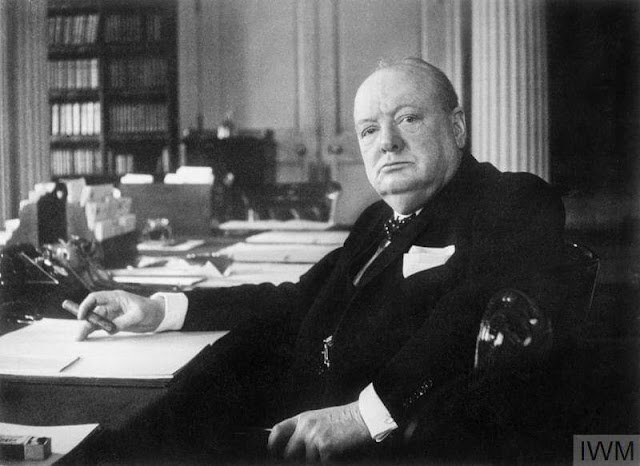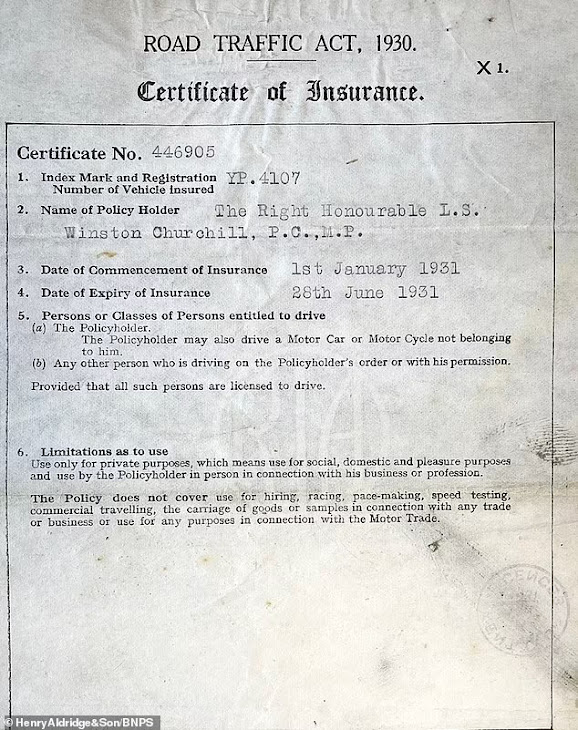Seventy-five
years after the colonial retreat, India has improved. A new generation of
Indians, more self-assured about our place in the world, are questioning why
there isn't more widespread knowledge and condemnation of the many dark
chapters of our colonial history, like the Bengal famine of 1943. …. the disaster that unfolded in British-ruled
Bengal has largely been forgotten – as the World
remembers its perpetrator’s birthday.
If your car is undriveable, we'll give you up to £100 for immediate travel expenses. Comprehensive cover only, onward travel to one UK destination, excludes glass only claims. Payment excludes weekends and bank holidays. .. .. what ?? .. .. do you own a Motor vehicle and do you know that you must have a valid Certificate of Insurance covering the vehicle !?
Diaries written by
British officers responsible for India's administration show that for months
Churchill's government turned down urgent pleas for the export of food to
India, fearing it would reduce stockpiles in the UK and take ships away from
the war effort. Churchill felt local politicians could do more to help the
starving. The notes more importantly reveal the British prime minister's attitude
towards India. During one government discussion about famine relief,
Secretary of State for India Leopold Amery recorded that Churchill suggested
any aid sent would be insufficient because of "Indians breeding like
rabbits". On February 13, 1943, Churchill wired the viceroy, Lord
Linlithgow: “I have heard that Gandhi usually has glucose in his water when
doing his various fasting antics. Would it be possible to verify this.”
The
Bengal famine of 1943 is a dark chapter in the annals of Indiah history whence
an estimated 2.1–3 million, out of a population of 60.3 million, died of
starvation, malaria, or other diseases aggravated by malnutrition, population
displacement, unsanitary conditions and lack of health care. Millions were
impoverished as the crisis overwhelmed large segments of the economy and
catastrophically disrupted the social fabric. Eventually, families
disintegrated; men sold their small farms and left home to look for work or to
join the British Indian Army, and women and children became homeless migrants,
often travelling to Calcutta or other large cities in search of organised
relief. The financing of military
escalation led to war-time inflation, as land was appropriated from thousands
of peasants
Sir
Winston Leonard Spencer Churchill (30.11.1874 – 24.1.1965) was a British
statesman, soldier, and writer who served as Prime Minister of the United
Kingdom twice, from 1940 to 1945 during the Second World War, and again from
1951 to 1955. Apart from two years between 1922 and 1924, he was a Member of
Parliament (MP) from 1900 to 1964 and represented a total of five
constituencies. Ideologically an economic liberal and imperialist, he was for
most of his career a member of the Conservative Party, which he led from 1940
to 1955. He was a member of the Liberal Party from 1904 to 1924.
As First Lord of the Admiralty during the
First World War, he oversaw the Gallipoli Campaign but, after it proved a
disaster, he was demoted to Chancellor of the Duchy of Lancaster. He resigned
in November 1915 and joined the Royal Scots Fusiliers on the Western Front for
six months. In 1917, he returned to government under David Lloyd George and
served successively as Minister of Munitions, Secretary of State for War,
Secretary of State for Air, and Secretary of State for the Colonies, overseeing
the Anglo-Irish Treaty and British foreign policy in the Middle East. Out of government during his so-called
"wilderness years" in the 1930s, Churchill took the lead in calling
for British rearmament to counter the growing threat of militarism in Nazi
Germany. At the outbreak of the Second World War he was re-appointed First Lord
of the Admiralty. In May 1940, he became Prime Minister, replacing Neville
Chamberlain. He lost the 1950 election,
but was returned to office in 1951. In declining health, Churchill resigned as
Prime Minister in 1955, although he remained an MP until 1964. Upon his death
in 1965, he was given a state funeral.
Certificate
of Insurance is a summary document issued by Authorised Insurers containing details
about the vehicle, policyholder and insurance policy itself. As per the rule
141 prescribed under The Motor Vehicles Act 1989, every insurance company
should issue an Insurance Certificate to the policyholder along with other
policy documents.
Last year, MailOnline reported about the car
insurance certificate issued to Winston Churchill 90 years ago going up for sale at £1,500. It gave him permission
to drive his Wolseley Landaulette between January 1 and June 28 in 1931, when
he was 56 – his 'wilderness years'. The one-page document, issued by the
Alliance Assurance Company Ltd, was auctioned
by Henry Aldridge & Son in Devizes, Wiltshire. It records his car
registration number YP 4107 but does not disclose the cost of his insurance. In 1911 he purchased a Napier 15hp
Landaulette in 'Marlborough blue' from a racing driver for £600 - £54,000 in
today's money.
The photo of dog at
the start is the symbol of Churchill Insurance, a British insurance company based in Bromley,
London. Founded in 1989, the company has expanded to offer a range of
general insurance products. Since February 2012, Churchill is part of the
Direct Line Group; policies are underwritten by the parent United Kingdom
Insurance Limited. Churchill is notable for its advertising that features a
talking nodding dog mascot.
In 1994, it was
decided that the company needed a mascot to represent the Churchill brand, and
differentiate it from the former British Prime Minister, Winston Churchill. A
staff competition led to the adoption of a bulldog, a well known symbol of
British identity. The first Churchill dog was a real bulldog called Lucas. The
company first used a nodding dog in 1996. In the company's television
advertising, the computer-animated Churchill dog was asked whether he could
save people money on their insurance and he responded with his catchphrase:
"Oh, yes!". Churchill was once
again redesigned in October 2019, where his long serving nodding dog design was
changed, to a new, CGI version.
Interesting !
1.12.2022.




No comments:
Post a Comment